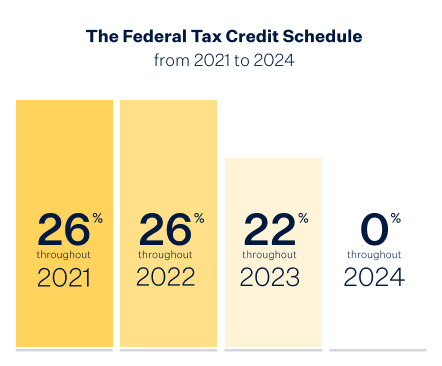
Rhode Island Solar Incentives
Bring Home the Benefits of Solar and Storage with Sunrun in Rhode Island
-45%
Solar price drop in Rhode Island over the last five years.1
20%
Solar power in Rhode Island is more cost-effective vs. other states.2
80%
Rhode Island’s cut in greenhouse gas (GHG) emissions below 1990 levels by 2050.3
Residential electricity rates in Rhode Island are more than 21% higher than the national average,4 but increasing control over electric bills isn’t the only reason why Rhode Islanders are going solar. Creating and storing your own clean energy can also protect your home from unexpected outages and reduce your carbon footprint. On top of that, there are excellent federal and state financial incentives to help you switch to solar for less.
Sunrun is the country’s leading residential solar and energy storage company.5 As one of the best solar installers in Rhode Island, we work so you can gain energy independence and security while ensuring you get the most solar benefits available.
Rhode Island’s Solar Tax Credits, Tax Exemptions, and Funds*
|
Incentive |
Value |
|
Inflation Reduction Act (IRA)** |
Qualified homeowners with home solar could be eligible for a tax credit of up to 30% against the cost of the system. |
|
Rhode Island Renewable Energy Fund (REF) |
The REF offers to fund up to $7,000 for eligible residential, small-scale solar arrays.7 |
|
Solar Investment Property Tax Exemption |
Property tax exemption on the added home value from the Rhode Island solar installation.8 |
|
Renewable Energy Sales Tax Exemption |
7% home solar system state sales tax exemption.8,9 |
|
National Grid’s Renewable Energy Growth (REG) Program |
National Grid customers not eligible for the state’s REF programs may qualify for their REG program to get compensation for every kilowatt-hour (kWh) created by their home solar power system.10,11 |
Find out if You Qualify for Rhode Island Solar Incentives |
|
Learn the Details of Rhode Island Solar Incentives
The REF offers to fund up to $7,000 for eligible residential, small-scale solar photovoltaics (PV) and solar domestic hot water (SDHW) systems.7
Solar projects must be located in Rhode Island. The REF grant programs are for direct-ownership (DO) projects only.7Click here to see the REF’s enrollment dates.
Install a new solar PV system in Rhode Island, and your property taxes won’t go up.8 Installing a system could also help you build home value.
When you purchase a new home solar energy system in Rhode Island, you won’t pay any sales tax.8 The exemption is for 100% of the sales tax on an eligible solar panel installation in Rhode Island and can save you 7% right off the bat.9
National Grid customers not eligible for the state’s REF programs may qualify for compensation for every kWh created by their home solar power system, thanks to the REG program.10
National Grid’s REG program pays from 23.44-29.65¢ per kWh for your solar generation as a Performance-Based Incentive (PBI). The 2020 REG program ends on 03/31/2021 or when its capacity is fulfilled.11
Now’s a Great Time to Get Solar and Storage
Take the first step to gain energy freedom and enjoy Rhode Island’s solar incentives. Our solar lease and purchase plans, with or without battery storage in Rhode Island, start at $0 down. What's more, National Grid and Pascoag Utility District offer net energy metering (NEM) programs that could let you earn credits on your bill for the excess clean energy you produce and send to the grid.13,14 Net metering in Rhode Island might help you save money on your future electricity bills.
A switch with a Rhode Island solar company like Sunrun can let you gain the peace of mind you deserve. Ready to change the way you power your life? Use our Product Selector or request a free quote to get one-on-one service from our expert Solar Advisors.
Go solar today

- Learn about the federal tax credit
- Find your ideal system and battery
- Get your energy usage and solar cost
DISCLAIMERS:
*Customer’s ability to monetize rebates, incentives, and tax credits depends on several factors, including, without limitation, continued state subsidization of these policies, the applicable Sunrun product type, and whether a customer purchases or leases a home solar system from Sunrun.
**We recommend contacting a tax professional to most accurately determine the impact tax credits may have on your federal taxes.
- Rhode Island solar price drop
- Rhode Island solar cost-effectiveness
- Rhode Island Greenhouse Gas (GHG) Reduction Plan
- Rhode Island electricity costs
- Sunrun ranked as leading residential solar-plus-storage vendor
- Federal Solar Investment Tax Credit (ITC)
- Rhode Island Renewable Energy Fund (REF) small-scale program
- Rhode Island solar property and sales tax exemptions
- Rhode Island state tax
- National Grid Renewable Energy Growth (REG) program
- National Grid REG program performance-based incentives (PBIs)
- Rhode Island solar panel costs
- National Grid net energy metering (NEM) program
- Pascoag Utility District NEM program